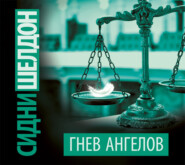По всем вопросам обращайтесь на: info@litportal.ru
(©) 2003-2025.
✖
Memories of Midnight
Автор
Год написания книги
2019
Настройки чтения
Размер шрифта
Высота строк
Поля
Catherine enjoyed getting to know her new colleagues, and she was awed by the beauty of the old building she worked in.
She mentioned it to Evelyn Kaye once in front of Wim and Wim said, “This was a government custom house designed by Sir Christopher Wren in 1721. After the great fire of London, Christopher Wren redesigned fifty churches, including St. Paul’s, St. Michael’s, and St. Bride’s. He designed the Royal Exchange and Buckingham House. He died in 1723 and is buried in St. Paul’s. This house was converted to an office building in 1907, and in the Second World War during the Blitz, the government declared it an official air-raid shelter.”
The air-raid shelter was a large bomb-proof room located through a heavy iron door adjoining the basement. Catherine looked into the heavily fortified room, and thought about the brave British men and women and children who had found shelter there during the terrible bombing by Hitler’s Luftwaffe.
The basement itself was huge, running the entire length of the building. It had a large boiler for heating the building, and was filled with electronic and telephone equipment. The boiler was a problem. Several times Catherine had escorted a repairman down to the basement to take a look at it. Each one would tinker with it, pronounce it cured of whatever had ailed it, and leave.
“It looks so dangerous,” Catherine said. “Is there any chance that it might explode?”
“Bless your heart, miss, of course not. See this safety valve here? Well, if the boiler should ever get too hot, the safety valve releases all the excess steam, and Bob’s your uncle. No problem.”
After the work day was over, there was London. London … a cornucopia of wonderful theater, ballet, and music concerts. There were interesting old bookstores like Hatchard’s and Foyle’s—and dozens of museums, little antique shops, and restaurants. Catherine visited the lithograph shops in Cecil Court and shopped at Harrods, and Fortnum and Mason, and Marks and Spencer, and had Sunday tea at the Savoy.
From time to time, unbidden thoughts came into Catherine’s mind. There were so many things to remind her of Larry. A voice … a phrase … a cologne … a song. No. The past is finished. The future is what’s important. And each day she became stronger.
Catherine and Evelyn Kaye became friends and occasionally went out together. One Sunday they visited the open-air art exhibition on the Thames embankment. There were dozens of artists there, young and old, displaying their paintings, and they all had one thing in common: They were failures who had been unable to have their works exhibited in any gallery. The paintings were terrible. Catherine bought one out of sympathy.
“Where are you going to put it?” Evelyn asked.
“In the boiler room,” Catherine said.
As they walked along the London streets, they came across the pavement artists, men who used colored chalks to paint on the stone of the pavement. Some of their work was amazing. Passers by would stop to admire them and then toss a few coins to the artists. One afternoon on her way back from lunch, Catherine stopped to watch an elderly man work on a beautiful landscape in chalk. As he was finishing it, it began to rain, and the old man stood there watching his work being washed away. That’s a lot like my past life, Catherine thought.
Evelyn took Catherine to Shepherd Market. “This is an interesting area,” Evelyn promised.
It was certainly colorful. There was a three-hundred-year-old restaurant called Tiddy Dols, a magazine stand, a market, a beauty parlor, a bakery, antique shops, and several two-and three-story residences.
The name plates on the mailboxes were odd. One read “Helen,” and below it “French lessons.” Another read “Rosie,” and below that “Greek taught here.”
“Is this an educational area?” Catherine asked.
Evelyn laughed aloud. “In a way I guess it is. Only the kind of education these girls give can’t be taught in school.”
Evelyn laughed even louder when Catherine blushed.
Catherine was alone most of the time, but she kept herself too busy to be lonely. She plunged into her days as though trying to make up for the precious moments of her life that had been stolen from her. She refused to worry about the past or the future. She visited Windsor Castle, and Canterbury with its beautiful cathedral, and Hampton Court. On weekends, she went into the country and stayed at quaint little inns, and took long walks through the countryside.
I’m alive,she thought.No one is born happy. Everyone has to make his own happiness. I’m a survivor. I’m young and I’m healthy and wonderful things are going to happen.
On Monday she would go back to work. Back to Evelyn and the girls and Wim Vandeen.
Wim Vandeen was an enigma.
Catherine had never met anyone like him. There were twenty employees in the office, and without even bothering to use a calculator, Wim Vandeen remembered every employee’s salary, national insurance number, and deductions. Although all of this was on file, he kept all the company records in his head. He knew the monthly cash flow from each division and how it compared with the previous months, going back five years, when he had started with the company.
Wim Vandeen remembered everything he had ever seen or heard or read. The range of his knowledge was incredible. The simplest questions on any subject would trigger a stream of information, yet he was anti-social.
Catherine discussed him with Evelyn. “I don’t understand Wim at all.”
“Wim is an eccentric,” Evelyn said. “You just have to take him as he is. All he’s interested in is numbers. I don’t think he cares about people.”
“Does he have friends?”
“No.”
“Does he ever date? I mean—go out with girls?”
“No.”
It seemed to Catherine that Wim was isolated and lonely, and she felt a kinship with him.
Wim’s range of knowledge amazed Catherine. One morning, she developed an ear ache.
Wim said gruffly, “This weather’s not going to help it any. You’d better go see an ear doctor.”
“Thanks, Wim. I …”
“The parts of the ear are the auricle, auditory meatus, tympanic membrane, the chain of ossicles—hammer, anvil, and stirrup—tympanic cavity, the semicircular duct, oval window, and eustachian tube, auditory nerve, and the cochlear duct.” And he walked away.
On another day, Catherine and Evelyn took Wim to lunch at the Ram’s Head, a local pub. In the back room, customers were throwing darts.
“Are you interested in sports, Wim?” Catherine asked. “Have you ever seen a baseball game?”
“Baseball,” Wim said. “A baseball is nine and a quarter inches in circumference. It’s made of yarn wound on a hard rubber cone and covered with white leather. The bat is usually made of ash, not more than two and three quarter inches in the greatest diameter, and not more than forty-two inches in length.”
He knows all the statistics,Catherine thought,but has he ever felt the excitement of actually doing it?
“Have you ever played any sports? Basketball, for instance?”
“Basketball is played on a wooden or concrete floor. The ball has a spherical leather cover thirty-one inches in circumference, inflated by a rubber bladder to thirteen pounds of pressure. It weighs twenty to twenty-two ounces. Basketball was invented by James Naismith in 1891.”
Catherine had her answer.
Sometimes Wim could be an embarrassment in public. One Sunday, Catherine and Evelyn took Wim to Maidenhead, on the Thames. They stopped at the Compleat Angler for lunch. The waiter came up to their table. “We have fresh clams today.”
Catherine turned to Wim. “Do you like clams?”
Wim said, “There are long clams, quahog, or round clams, razor clams, surf clams, single shells, and blood clams.”
The waiter was staring at him. “Would you care to order some, sir?”
“I don’t like clams,” Wim snapped.
Catherine liked the people she was working with, but Wim became special to her. He was brilliant beyond her comprehension, and at the same time, he seemed withdrawn and lonely.
Catherine said to Evelyn one day: “Isn’t there some chance that Wim might lead a normal life? Fall in love and get married?”
Evelyn sighed. “I told you. He has no emotions. He’ll never get attached to anyone.”

















